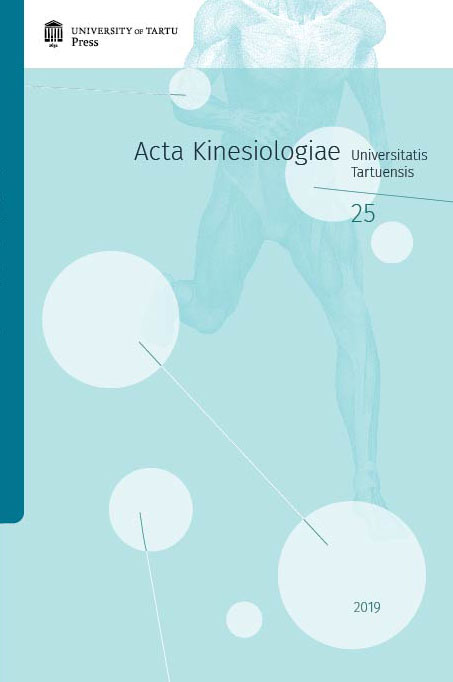Gait parameters of individuals with Parkinson disease decline during one-year period
DOI:
https://doi.org/10.12697/akut.2019.25.01Keywords:
Parkinson disease, gait, deterioration of function, progressionAbstract
Parkinson’s disease (PD) is a neurodegenerative disease, influencing mainly elderly. The key motor factor affecting the level of participation in activities of daily living is the gait function, which is known to be progressively impaired in PD. However, gait characteristics also worsen due to normal aging. The main aim of this study was to investigate whether gait parameters decline in individuals with PD in an interval of one year compared to healthy elderly. Selected gait characteristics were recorded using 3-D optoelectronic movement analysis system ELITE in 13 patients with mild-to-moderate PD and 13 age- and gender-matched controls. Hoehn and Yahr Scale and Unified Parkinson Disease Rating Scale were used for clinical assessment. It was found that PD patients walk with significantly shorter steps and stride and reduced gait speed. In one year, the stride length initiated with right foot and stride walk ratio further decrease in PD patients. On re-evaluation the percentages of stance, swing and double support phase differed significantly between groups. In second measurement, control subjects walked with reduced step width. It was concluded that gait speed and stride length decline in patients with PD in a period of one year, whereas no indication of deterioration of gait function is evident in healthy controls.


